
The rights of lesbian, gay, bisexual, and transgender (LGBT) people in the U.S. state of Utah have significantly evolved in the 21st century. Protective laws have become increasingly enacted since 2014, despite the state's reputation as socially conservative and highly religious. Same-sex marriage has been legal since the state's ban was ruled unconstitutional by federal courts in 2014. In addition, statewide anti-discrimination laws now cover sexual orientation and gender identity in employment and housing, and the use of conversion therapy on minors is prohibited. In spite of this, there are still a few differences between the treatment of LGBT people and the rest of the population, and the rights of transgender youth are restricted.
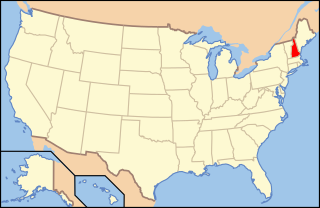
Lesbian, gay, bisexual, and transgender (LGBT) people in the U.S. state of New Hampshire enjoy the same rights as non-LGBT people, with most advances in LGBT rights occurring in the state within the past two decades. Same-sex sexual activity is legal in New Hampshire, and the state began offering same-sex couples the option of forming a civil union on January 1, 2008. Civil unions offered most of the same protections as marriages with respect to state law, but not the federal benefits of marriage. Same-sex marriage in New Hampshire has been legally allowed since January 1, 2010, and one year later New Hampshire's civil unions expired, with all such unions converted to marriages. New Hampshire law has also protected against discrimination based on sexual orientation since 1998 and gender identity since 2018. Additionally, a conversion therapy ban on minors became effective in the state in January 2019. In effect since January 1, 2024, the archaic common-law "gay panic defence" was formally abolished; by legislation implemented within August 2023.
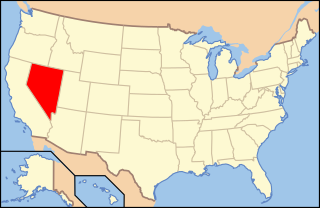
Lesbian, gay, bisexual, and transgender (LGBT) people in the U.S. state of Nevada enjoy the same rights as non-LGBT people. Same-sex marriage has been legal since October 8, 2014, due to the federal Ninth Circuit Court of Appeals ruling in Sevcik v. Sandoval. Same-sex couples may also enter a domestic partnership status that provides many of the same rights and responsibilities as marriage. However, domestic partners lack the same rights to medical coverage as their married counterparts and their parental rights are not as well defined. Same-sex couples are also allowed to adopt, and state law prohibits unfair discrimination on the basis of sexual orientation and gender identity, among other categories, in employment, housing and public accommodations. In addition, conversion therapy on minors is outlawed in the state.

Lesbian, gay, bisexual, and transgender (LGBT) persons in the U.S. state of Wyoming may face some legal challenges not experienced by non-LGBT residents. Same-sex sexual activity has been legal in Wyoming since 1977, and same-sex marriage was legalized in the state in October 2014. Wyoming statutes do not address discrimination on the basis of sexual orientation and gender identity; however, the U.S. Supreme Court's ruling in Bostock v. Clayton County established that employment discrimination against LGBT people is illegal under federal law. In addition, the cities of Jackson, Casper, and Laramie have enacted ordinances outlawing discrimination in housing and public accommodations that cover sexual orientation and gender identity.
Same-sex marriage has been legally recognized in Nevada since October 9, 2014, when a federal district court judge issued an injunction against Nevada's enforcement of its same-sex marriage ban, acting on order from the Ninth Circuit Court of Appeals. A unanimous three-judge panel of the Ninth Circuit had ruled two days earlier that the state's ban on same-sex marriage was unconstitutional. Same-sex marriage was previously banned by an amendment to the Constitution of Nevada adopted in 2002. The statutory and constitutional bans were repealed in 2017 and 2020, respectively.
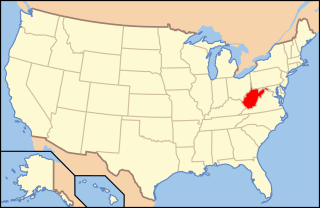
Lesbian, gay, bisexual, and transgender (LGBT) people in the U.S. state of West Virginia face legal challenges not faced by non-LGBT persons. Same-sex sexual activity has been legal since 1976, and same-sex marriage has been recognized since October 2014. West Virginia statutes do not address discrimination on account of sexual orientation or gender identity; however, the U.S. Supreme Court's ruling in Bostock v. Clayton County established that employment discrimination against LGBT people is illegal.
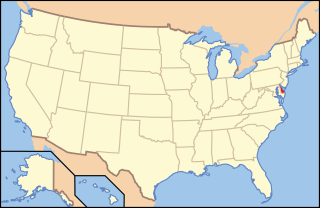
Lesbian, gay, bisexual, and transgender (LGBT) people in the U.S. state of Delaware enjoy the same legal protections as non-LGBT people. Same-sex sexual activity has been legal in Delaware since January 1, 1973. On January 1, 2012, civil unions became available to same-sex couples, granting them the "rights, benefits, protections, and responsibilities" of married persons. Delaware legalized same-sex marriage on July 1, 2013.

Lesbian, gay, bisexual, and transgender (LGBT) people in New Jersey have the same legal rights as non-LGBT people. LGBT persons in New Jersey enjoy strong protections from discrimination, and have had the right to marry since October 21, 2013.
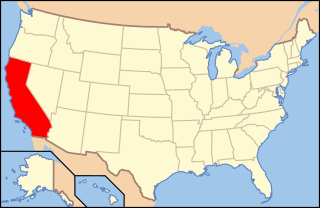
California is seen as one of the most liberal states in the U.S. in regard to lesbian, gay, bisexual, and transgender (LGBT) rights, which have received nationwide recognition since the 1970s. Same-sex sexual activity has been legal in the state since 1976. Discrimination protections regarding sexual orientation and gender identity or expression were adopted statewide in 2003. Transgender people are also permitted to change their legal gender on official documents without any medical interventions, and mental health providers are prohibited from engaging in conversion therapy on minors.

The U.S. state of New York has generally been seen as socially liberal in regard to lesbian, gay, bisexual, and transgender (LGBT) rights. LGBT travel guide Queer in the World states, "The fabulosity of Gay New York is unrivaled on Earth, and queer culture seeps into every corner of its five boroughs". The advocacy movement for LGBT rights in the state has been dated as far back as 1969 during the Stonewall riots in New York City. Same-sex sexual activity between consenting adults has been legal since the New York v. Onofre case in 1980. Same-sex marriage has been legal statewide since 2011, with some cities recognizing domestic partnerships between same-sex couples since 1998. Discrimination protections in credit, housing, employment, education, and public accommodation have explicitly included sexual orientation since 2003 and gender identity or expression since 2019. Transgender people in the state legally do not have to undergo sex reassignment surgery to change their sex or gender on official documents since 2014. In addition, both conversion therapy on minors and the gay and trans panic defense have been banned since 2019. Since 2021, commercial surrogacy has been legally available within New York State.

Illinois is seen as one of the most progressive states in the United States in regard to lesbian, gay, bisexual, and transgender (LGBT) rights and often viewed as one of the most liberal states in the Midwestern United States. Same-sex sexual activity has been legal since 1962, after Illinois became the first U.S. state to repeal its sodomy laws. Same-sex marriage was banned by statute in 1996, but has since been legalized after a law allowing such marriages was signed by Governor Pat Quinn on November 20, 2013 and went into effect on June 1, 2014. Civil unions have been recognized since 2011, and same-sex couples are also allowed to adopt. Additionally, discrimination on the basis of sexual orientation and gender identity is banned in employment, housing, credit and public accommodations, and conversion therapy on minors has been outlawed since 2016.

In the District of Columbia, lesbian, gay, bisexual, and transgender (LGBT) people enjoy the same rights as non-LGBT people. Along with the rest of the country, the District of Columbia recognizes and allows same-sex marriages. The percentage of same-sex households in the District of Columbia in 2008 was at 1.8%, the highest in the nation. This number had grown to 4.2% by early 2015.
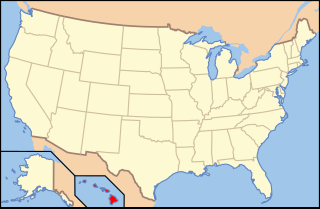
Lesbian, gay, bisexual, and transgender (LGBT) people in the U.S. state of Hawaii enjoy the same rights as non-LGBT people. Same-sex sexual activity has been legal since 1973; Hawaii being one of the first six states to legalize it. In 1993, a ruling by the Hawaiʻi Supreme Court made Hawaii the first state to consider legalizing same-sex marriage. Following the approval of the Hawaii Marriage Equality Act in November 2013, same-sex couples have been allowed to marry on the islands. Additionally, Hawaii law prohibits discrimination on the basis of both sexual orientation and gender identity, and the use of conversion therapy on minors has been banned since July 2018. Gay and lesbian couples enjoy the same rights, benefits and treatment as opposite-sex couples, including the right to marry and adopt.

Lesbian, gay, bisexual, and transgender (LGBT) people in the U.S. state of Pennsylvania enjoy most of the same rights as non-LGBT residents. Same-sex sexual activity is legal in Pennsylvania. Same-sex couples and families headed by same-sex couples are eligible for all of the protections available to opposite-sex married couples. Pennsylvania was the final Mid-Atlantic state without same-sex marriage, indeed lacking any form of same-sex recognition law until its statutory ban was overturned on May 20, 2014.
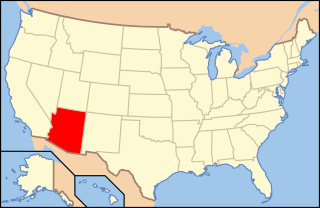
Lesbian, gay, bisexual, and transgender (LGBT) people in the U.S. state of Arizona may face legal challenges not experienced by non-LGBT residents. Same-sex sexual activity is legal in Arizona, and same-sex couples are able to marry and adopt. Nevertheless, the state provides only limited protections against discrimination on the basis of sexual orientation and gender identity. Several cities, including Phoenix and Tucson, have enacted ordinances to protect LGBT people from unfair discrimination in employment, housing and public accommodations.
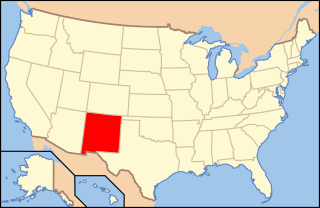
Lesbian, gay, bisexual, and transgender (LGBT) people in the U.S. state of New Mexico enjoy the same rights as non-LGBT people. New Mexico has seen prominent advances in gay and lesbian rights in recent decades. Same-sex sexual activity has been legal since 1975. Same-sex marriage is legal statewide in New Mexico, as is adoption and access to fertility treatments for lesbian couples. Same-sex couples now enjoy the same rights as heterosexual married couples. Discrimination on the basis of sexual orientation and gender identity is banned statewide in the areas of employment, housing and public accommodations. Additionally, conversion therapy on minors is prohibited in the state.
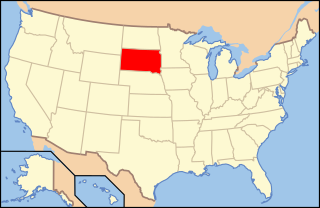
Lesbian, gay, bisexual, and transgender (LGBT) people in the U.S. state of South Dakota may face some legal challenges not experienced by non-LGBT residents. Same-sex sexual activity is legal in South Dakota, and same-sex marriages have been recognized since June 2015 as a result of Obergefell v. Hodges. State statutes do not address discrimination on account of sexual orientation or gender identity; however, the U.S. Supreme Court's ruling in Bostock v. Clayton County established that employment discrimination against LGBT people is illegal under federal law.

Lesbian, gay, bisexual, and transgender (LGBT) persons in the U.S. commonwealth of Kentucky still face some legal challenges not experienced by other people. Same-sex sexual activity is legal in Kentucky, although the state legislature has not repealed its sodomy statute for same-sex couples. Same-sex marriage is legal in Kentucky under the U.S. Supreme Court ruling in Obergefell v. Hodges. The decision, which struck down Kentucky's statutory and constitutional bans on same-sex marriages and all other same-sex marriage bans elsewhere in the country, was handed down on June 26, 2015.
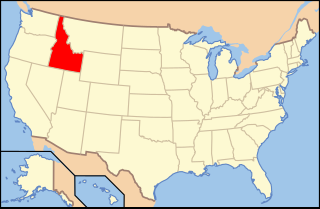
Lesbian, gay, bisexual and transgender (LGBT) people in the U.S. state of Idaho face some legal challenges not experienced by non-LGBT people. Same-sex sexual activity is legal in Idaho, and same-sex marriage has been legal in the state since October 2014. State statutes do not address discrimination based on sexual orientation and gender identity; however, the U.S. Supreme Court's ruling in Bostock v. Clayton County established that employment discrimination against LGBT people is illegal under federal law. A number of cities and counties provide further protections, namely in housing and public accommodations. A 2019 Public Religion Research Institute opinion poll showed that 71% of Idahoans supported anti-discrimination legislation protecting LGBT people, and a 2016 survey by the same pollster found majority support for same-sex marriage.

Lesbian, gay, bisexual, and transgender (LGBT) persons in the U.S. state of Alaska may face some legal challenges not experienced by non-LGBT Alaskans. Since 1980, same-sex sexual conduct has been allowed, and same-sex couples can marry since October 2014. The state offers few legal protections against discrimination on the basis of sexual orientation and gender identity, leaving LGBT people vulnerable to discrimination in housing and public accommodations; however, the U.S. Supreme Court's ruling in Bostock v. Clayton County established that employment discrimination against LGBT people is illegal under federal law. In addition, four Alaskan cities, Anchorage, Juneau, Sitka and Ketchikan, representing about 46% of the state population, have passed discrimination protections for housing and public accommodations.



















